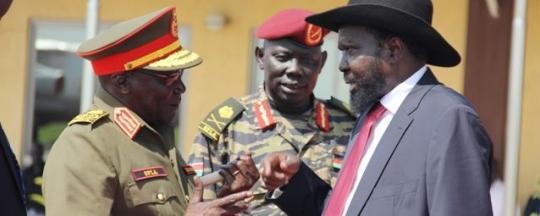A number of allies of South Sudanese President Salva Kiir in the parliament declared on Wednesday they would approve the presidential ‘order’ creating 28 states in the country, claiming the order was an answer to the longstanding demand for decentralized system of governance.
Kiir initially announced the creation of the 28 states as a ‘republican order’ requiring no parliamentary approval, but this week he backtracked and announced through Information Minister Michael Makuei that the decree would first go to parliament for approval because of its constitutional implications.
Speaking in interviews on Wednesday, several members of parliament voiced readiness to pass the proposal as a constitutional amendment. “If it comes to parliament, it will be approved,” said Agany Deng Kawac, a member of parliament from Aweil East County in Northern Bahr el Ghazal.
“This is what the people want. Some communities have now started consultations about who they want to be their new governors, their commissioners, members of parliament and state ministers. This is what they are doing now.”
Agany continued, “So if the parliament does not approve the order, the members will have a hard time to answer and explain reasons for rejecting it, which is answer to their longstanding demand for decentralized system of governance which takes power and services close to them,” said Agany.
Samuel Duwar, head of the parliamentary committee on security and public order, said the order would be introduced to the parliament by the justice minister as a request for an amendment to the constitution.
The legislator denied that the Establishment Order has violated some provisions of the transitional constitution of the country, claiming there are no clear provisions in the constitution which prevent the president from initiating such a request to parliament in whatever way he does.
“There are no provisions in the constitution which defines how the president should initiate the amendment of the constitution. It could be through republican order. It could be through letter writing. So it is not right that the president has violated the constitution. He acted within the parameters of the law. Also the order is a clear answer to the demand of the people and it must be approved,” said Duwar.
Gabriel Roric, an appointed member of parliament representing the National Congress Party (NCP) claimed that anybody who opposes the approval of the order would definitely have to tell people the cause for rejection.
“We the political parties have already issued a statement to the effect affirming our support to the presidential order. We will support its approval in parliament and in the implementation,” said Roric.
He said that being in opposition does not mean opposing everything from the president. “Being in opposition does not mean to oppose whatever is proposed by the ruling party. There are things which cannot be opposed and things which can be supported.”
“Not everything presented by the ruling party is bad. So if there are people who oppose this order, I think the people of South Sudan will not stand with them. It means that they are against the people and I don’t think they will succeed,” said Roric.
File photo: President Salva Kiir with two of his top generals
Related coverage:
Kiir pressured into taking decree to parliament for approval
Politicians proposed renaming part of Warrap ‘Kiir State’
New ‘states’ lack constitutions until Kiir appoints legislatures
Establishment order hailed as Kiir’s ‘checkmate’ move; critics cite ‘end of the Republic’




